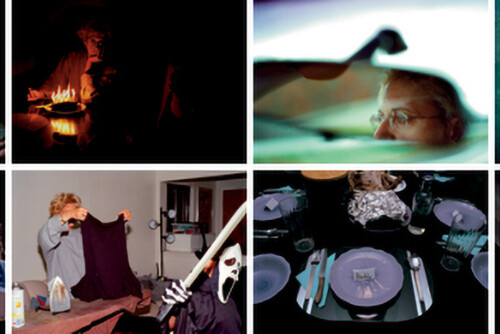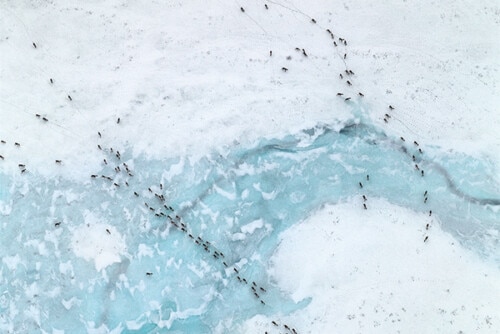MS: When you provided public testimony to the Commission on the Safety and Abuse in America’s Prisons, you spoke about the disconnect between prisons and families. You noted that although we know intact families help prisoners successfully reenter society, and while we acknowledge that children who are provided safety and stability generally grow into healthy adulthood, the prison system works to undermine both these ideals. You also said that you were still in the process of discovering exactly how the experience of incarceration impacted you and your daughter.
ab: Yes, that was in 2005 when I gave that testimony. It’s different for different families, and how one is impacted plays out depending on the circumstances. I mean, I have friends who saw their families arrested and taken to prison, which has a different impact from those who didn’t witness an arrest. But whatever happens, the theater of punishment and criminal justice is vulgar. It’s a fanged-toothed monster that wants to shame and humiliate. Yet shame and humiliation is the least effective and worst teacher. Its effects extend beyond the prison and the person for whom it is intended. We should be a better culture; we should want to see people better educated, empowered and restored to health. But the problem is that we don’t have any real impetus to change patterns in lives and in the ways most of us are undone by violence. We live in this place where shame and humiliation is the rule, and the effect of these things lasts for generations.
When you love someone who is incarcerated, you do not get out of the emotional shame of it all. On top of that, data tells us our children are more likely to become incarcerated, to have children before they are twenty, etc. So we are made to feel emotionally ashamed by our connection with the prison, and then we are made to feel shame and guilt by what we are told might happen to our children. I mean, you would think that at some juncture our culture would make a different choice, but we don’t. [We don’t let go of this idea of punishment and humiliation] because somebody is making money from the problem.
MS: Of all the issues surrounding children and incarceration, two things are of particular interest to me: the first is that because departments of corrections are not mandated to recognize children, we do not have accurate statistics on the number of children impacted; by not officially acknowledging them, we are subtly telling our children they don’t count. Also, I am alarmed that we have so little K-12 curricula concerning incarceration. I mean, classrooms could at least have books on incarceration to help children understand what their families are going through.
ab: I home-school Nisa, and part of the reason is because I did not think her school had cultural competency. I don’t just mean with respect to the curricula, although that too, but it was not able to embrace the whole of the child. When you mention statistics, it’s interesting because recently I wrote a script on mentoring; Oprah read it actually. Anyway, I had a very hard time finding exact statistics on the number of children whose parents are incarcerated. The other thing is that I remember when Nisa was a little one and I brought her to the prison, there was a children’s room, but neither Rashid nor I could go in. If you send your child into the children’s room during visitation, you’re not allowed to go in and play with her or read to her; you can’t even really just stand and hover over her! So here’s this place, the playroom, where a child should be able to be a child, but a parent can’t be present. It makes no sense. It should be that the parents and children can be together, and the child should be able to see how the family could act in a normal circumstance. Children should be able to see themselves and their parents as a whole, loving family. And this is in New York; I have no idea what happens in other places.
MS: In your role as Director of the Advocacy Grants Program at the Drug Policy Alliance, I imagine you see a linkage between drug use/abuse and prison. Can you speak about this?
ab: The drug war drives the prison population we see right now. What I know is that if there were real treatment options, this would change. We choose to incarcerate rather than treat. The exponential removal of black men from distinct communities in New York has made people less, not more, safe. And let’s talk about the removal of black women and mothers. When you remove them you’ve removed parenting forces. Even if people are not perfect, they are better than having no supervision.
[As a nation] we choose what to do. I was in Katrina after the disaster, and I saw what we lost. By contrast, Cuba had Hugo and no person was lost. I was in Cuba in the early 1990s after the collapse of the Soviet Union. The nation was living on 15% of GNP. It was not a great place to be; electricity went out, etc. But one thing that was done was that there were these little roadside clinics where people could go if they were having a hard time. We are in a crisis situation here in the United States, and why can’t we have something like that: a place where people can just drop in and say ‘I’m having a hard time; I need help’? There is no statistic where we are the best at anything. How does that trickle down to the woman who lives down the block? How does it trickle down to her kids? Every day that we choose prisons, we don’t choose children or ourselves. We choose to lose every day. We also fail to see the connections between things. We know there is a 70% illiteracy rate for prisoners, so do we think maybe there is a correlation between that and poverty or criminal involvement? When, as we did a while ago, we put the same amount of money on incarceration as we do on higher education, what does that tell us about how we see higher education? When we choose prisons—over treatment, over education, over children, over adequate housing—we choose to lose.



